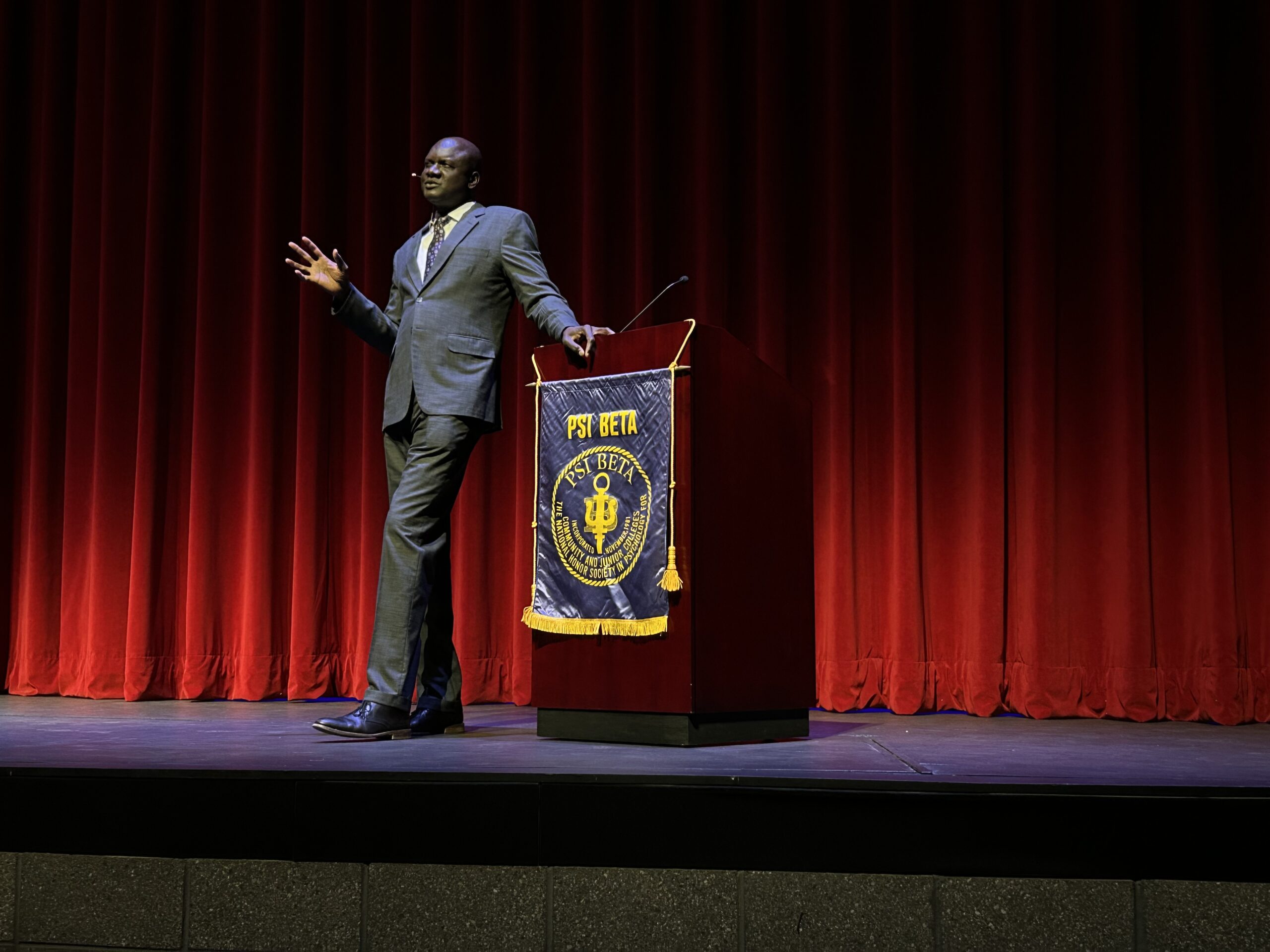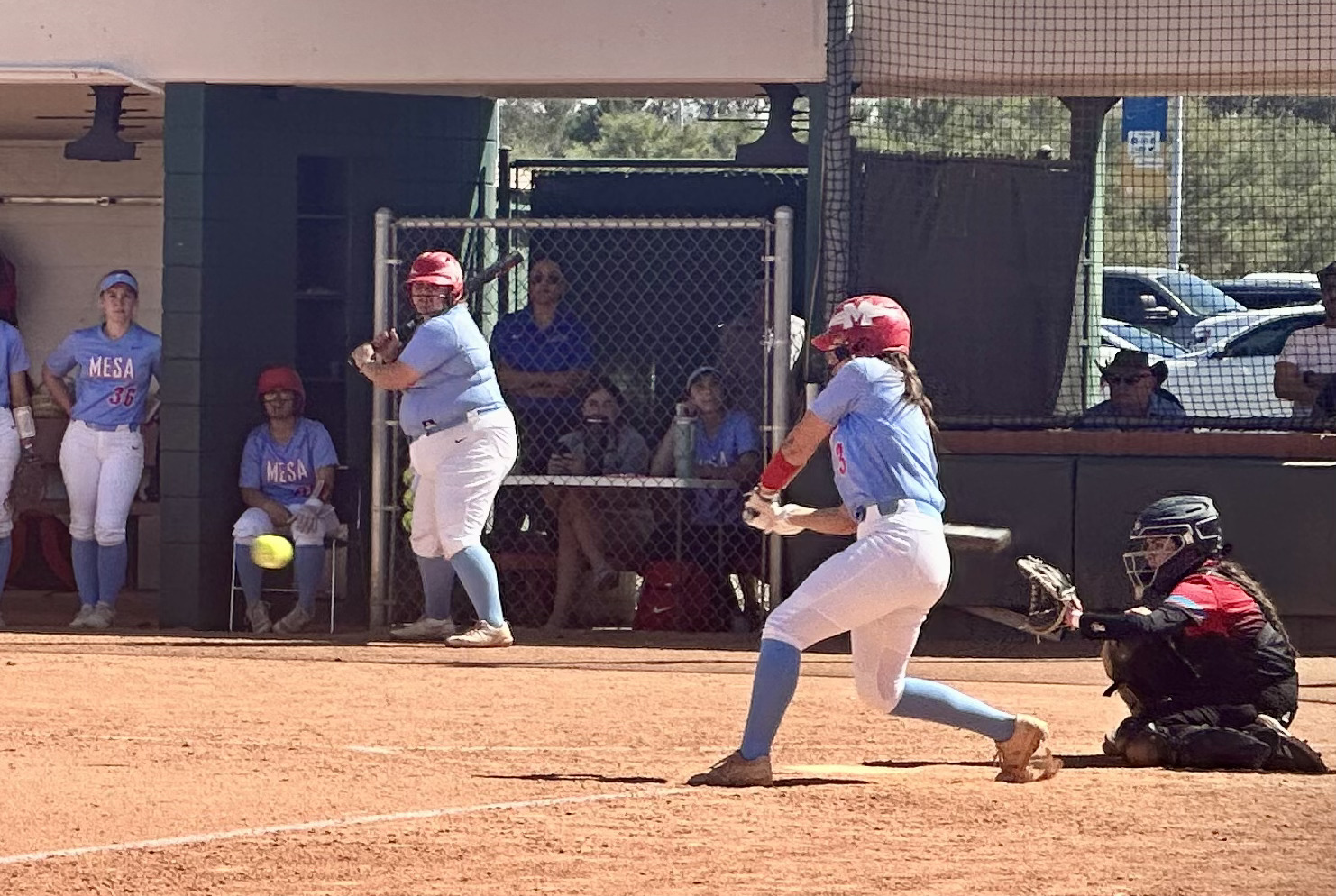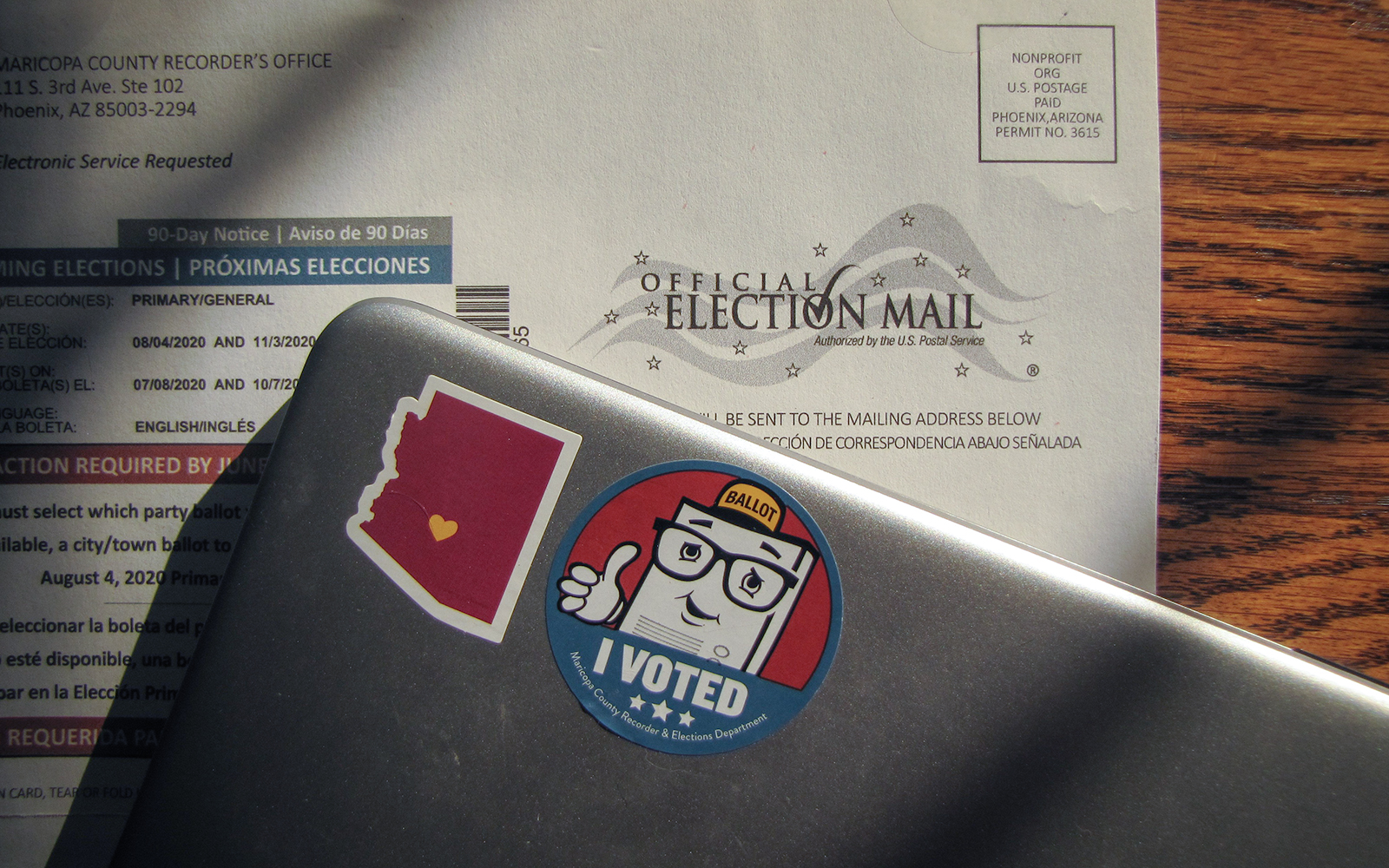College students recruited as new generation of COVID-19 poll workers
As Arizona and Maricopa county prepare for a record turnout in the November elections, voter advocacy groups across the nation are recruiting on college campuses to fight potential poll worker shortages.
Groups like the Campus Vote Project, started by the Fair Elections Center, work directly with colleges to boost student voting–and now students at poll stations. They claim COVID-19 will cause less people to sign up for the job, leading to long lines, massive gatherings and voter discouragement in the face of a controversial presidential election.
“We are staring down a huge problem for this fall,” said Zach Price, Campus Vote Project’s Arizona regional coordinator of student poll workers. “More than half of all poll workers are over the age of 60, and we are confronted by a pandemic that primarily affects people over the age of 60.”
Data from the Center for Disease Control and Prevention published June 6 confirms seniors may have a right to worry. Those over the age of 65 experienced more than seven times the amount of COVID-19 hospitalizations per 100,000 people than those aged 18-29.
“A lot of people who have served as poll workers in their communities over time are choosing not to do so. When that happens, it makes it very hard for counties to properly staff their polling locations,” Price explained.
James Lengyel and Noah Goldstein of the Poll Workers Project, a newly formed voter advocacy group, believe the threat of voter disenfranchisement caused by long lines and crowds already has real world examples.
“We formed after looking at examples in Milwaukee, where they had shut down 180 polling stations to five, and in Louisville where they had one polling station for over 600,000 people, and in Atlanta, where people were waiting in line for hours and hours,” Goldstein explained. “As we were doing more research, it became pretty evident that it was actually a poll worker volunteer shortage that was causing these consolidations and these lines.”
“Fifty-six percent of the country’s poll workers were 61 or older in 2016,” Lengyel explained. “Pushing forward to 2018, we saw that 58% of those poll workers nationwide were 61 or older. And as older demographics are more at threat for COVID19, it’s clear that there is going to be a very serious resource gap.”
College students, it would seem, are a major part of the solution.
“College students make a really good demographic because, in a lot of situations, they are young and healthy,” Price said. “Also, we are not only looking at a pandemic, but a recession… Being a poll worker is a paid job.”
Along with fitting some of the job’s logistical requirements, such as free time and good health, Price and others believe college students would benefit from the experience the position offers.
“We know that we can typically rely on them to be active folks in their community and active folks in their specific places of influence, and we are looking at them to be part of the solution, among anybody else in their age demographic,” Lengyel said.
“It is always valuable to try and empower and lift up people like college students, who have traditionally not been as empowered to work on our democracy,” Price said.
So far, practical recruitment efforts by voter advocacy groups has been limited to spreading awareness through student publications and reaching out virtually to campus administrators who might know students willing to work.
Sarah Vonck is a member of the on-campus voter advocacy group MCC Votes. She is also one of the select members with experience as a poll worker. In Massachusetts, 2018, her job was to wake up early and count ballots until noon for her county. Today, she meets virtually with members of the community to get students involved in the voting process.
“I learned more about the ballot counting process. I learned about all of the different steps to make sure the numbers were counted accurately and safely,” Vonck said. “I feel, in general, it should be a position that everyone should be very excited to have the opportunity to do.”
MCC Votes continues to develop poll worker recruitment efforts in preparation for November.
While private organizations across the nation mobilize to recruit college students, public institutions like the Arizona Secretary of State’s office and the
Maricopa County Elections Department connect interested participants with polling facilities that may need their help.
“The most important thing for us is that we have enough poll workers to support these large locations,” said Megan Gilbertson, the communications director at the Maricopa County Elections Department. “Physical distancing and the locations that would be large enough to accommodate physical distancing are the most important.”
When asked if the county was concerned about a potential poll worker shortage, officials referred to data from the primary election as a potential predictor.
“For the primary election we were able to staff at 94% of our staffing capacity. So if we say we want ten workers at each poll location, we were definitely above what the state law requires,” Gilbertson said.
Arizona state law requires a minimum of at least four poll workers per location.
In the primary elections, Maricopa county had a vote center model, which meant voters could pick the polling location of their choice. While Gilbertson confirmed the general election locations aren’t set yet, she stated the county’s plan is to increase the number of locations available from the primary.
The Maricopa County board of supervisors is set to approve the new voting locations in September. Until then, Gilberston explained, the county won’t know how many poll workers it will need or where exactly they will go.
On top of securing physically large polling locations, the county emphasized hiring well-trained elections staff to fulfill some of the leadership roles at each center.
“The most important thing to us is that our inspectors need to have experience and need to have served in past elections,” Gilberston said. “Elections laws are very complex, and we want to make sure that the head of the poll workers at each location has a solid foundation.”
The Arizona Secretary of State created a portal on their website, http://www.azsos.gov, which informs and connects voters and potential poll workers to their proper voting locations. Along with the county, they are working to connect interested individuals with places that could use the help.
“We are prepared for anything that may happen, as we were with the primary election. We have backup poll workers. We are working with counties to ensure those poll workers are protected, and that every eligible voter can vote safely,” explained Sophia Solis, public information officer for the Secretary of State’s office.
Donovan Carr, the tribal liaison and outreach coordinator at the Arizona Secretary of State’s office, believed that in the face of the coming elections, interdepartmental cooperation has been high.
“Our county partners have really been pre-emptive in anticipating problems ahead of time. A lot of this is just getting ahead of the curve, rather than being reactionary,” Carr said.
For now, it seems the overall theme heading into the elections is that of over-preparation. No one knows exactly what is going to happen on election day, but everyone expects it to be huge. The county, state and many others recommend everyone vote early in order to mitigate the risk of large gatherings and volunteer for poll work if you are up to the task.
“We’re always recruiting,” Gilbertson said.
The Maricopa County Elections Department is required to have registered poll workers from both major political parties at every polling station. The last day to register to vote for the November general election is Oct. 5. Pay is hourly and ranges between $12-$15 depending on experience.
“It’s a one day commitment, a chance to give back to your community. If you care about elections, it’s a really easy way for you to ensure that our elections this year are going to turn out the way you want them to, and that there won’t be long lines at the polls or long standing questions about whether or not our elections are free and fair,” Price said.
If you are a Maricopa resident interested in learning more about becoming a poll worker, visit
https://recorder.maricopa.gov/getinvolved/default.aspx.
For those outside of Maricopa county, or for information tailored to college students, see https://www.powerthepolls.org/?source=CVPS.










